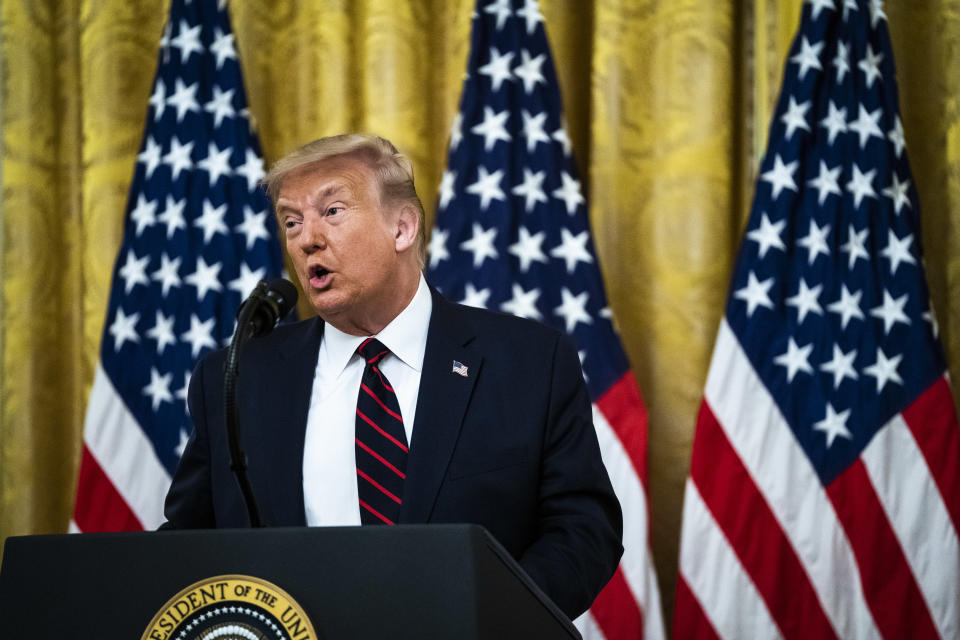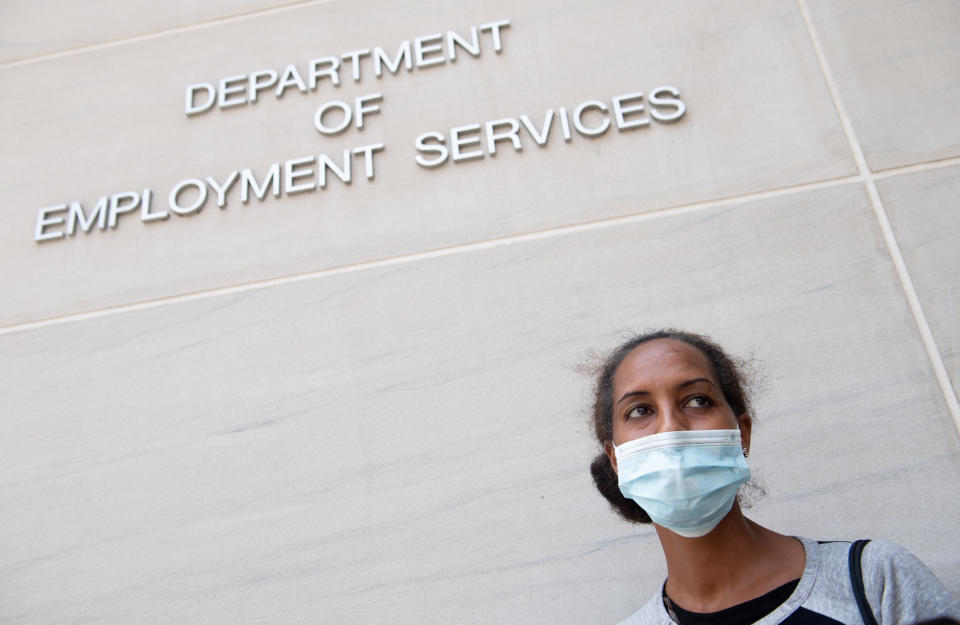Coronavirus stimulus: Trump floats executive order on suspending payroll tax but 'has limited authority' to do so
As Americans wait for the passage of another stimulus package, President Donald Trump stated that he might try to unilaterally suspend the payroll tax through an executive order.
“Well, I may do it myself,” Trump said in an interview with Fox & Friends on Wednesday. “I have the right to suspend it, and I may do it myself — I have the absolute right to suspend the payroll.”

However, experts say his authority to do so is limited given that the president only can postpone the payment of the tax for workers but not to suspend it.
“Congress has to pass tax laws, not the president,” Seth Hanlon, a tax-policy expert at the Center for American Progress, told Yahoo Money. “He has limited authority to postpone tax filing and payment deadlines, in instances of disasters.”
The tax code allows the president to postpone the payroll tax, though doing so in this case would be “a real stretch of his authority,” according to Hanlon. Such provisions are intended for situations when people can't file their taxes, like in the case of a natural disaster.
‘The tax cut wouldn't pass through the workers’
Payroll tax is collected from both the employer and employee — 7.65% of the employees’ paycheck is taken out and another 7.65% is paid by the employer. The president can postpone the payment of the employee portion, but companies will likely continue to collect it because they are liable for the employee-side payroll tax.
“If you postpone the payment of the tax, employers would still want to withhold the tax,” Hanlon said. “The tax cut wouldn't pass through the workers unless employers stop withholding the tax.”
Furthermore, the president has no authority to stop the employers from withholding employee payroll taxes, according to Hanlon. Employers would likely hold the money from the tax until a payment is due and nothing will be passed to employees in the near future.
If employers decide to stop withholding the tax, they're taking an enormous risk unless Congress acts later and bail them out of paying the tax.
“Unless they withhold it at the time of the paycheck, they'll have to come up with a payment separately,” Hanlon said, adding that any delay would not be effective as a stimulus policy.

‘It gives a bigger benefit to people with the highest income’
Trump has been pushing for a payroll tax cut since the pandemic started, but such a provision has been rejected multiple times, particularly during CARES Act negotiations.
“This is all in service of a policy that not just Democrats rejected but also Trump’s party rejected it... McConnell couldn't commit to it,” Hanlon said. “No one wants it.”
A payroll tax cut will disproportionally benefit high-income earners. For instance, a couple earning $275,400 would receive $10,534 in tax cuts over six months, while a single parent earning $20,000 as an essential worker cleaning hospital rooms would receive $765, according to an analysis by the Center on Budget and Policy Priorities.
“Even it works, it only helps people that are continuing to draw paychecks, it doesn't go to anybody who's lost their income or their paycheck,” Hanlon said. “It gives a bigger benefit to people with the highest income.”
Draining Social Security and Medicare
Social Security and Medicare, which are funded by the payroll tax, may lose some funding in the case of Trump’s unilateral action compared with Congress passing legislation on this.
“Through this policy, Trump will be unilaterally be draining money from Social Security and Medicare,” Hanlon said.
The only time a similar policy was implemented was in 2011-2012 when Congress did a payroll tax holiday. At the time, Congress suspended the tax for two years — not delaying it because they did it legislatively — and could adjust their withholdings in advance.
By doing it through legislation, it allowed them to pay for it by making an appropriation from the General Fund into the Social Security Trust Fund.
“They did it through legislation, not through an essential fiat,” Hanlon said. “In the past, when they did a payroll tax holiday, Congress made it up by transferring money from the general Treasury to make Social Security and Medicare.”
The 2011-2012 payroll tax holiday only reduced the employee side of the tax going to Social Security and didn’t touch any part of the tax going to Medicare. So far, Trump has not indicated whether or not he would be delaying the entire 7.65% tax or just part of it.
Denitsa is a writer for Yahoo Finance and Cashay, a new personal finance website. Follow her on Twitter @denitsa_tsekova.
Read more:
Rich Americans' pullback in spending is hurting the economic recovery
Even as GDP tanked, personal income grew thanks to government support
Read more personal finance information, news, and tips on Cashay
Follow Yahoo Finance on Twitter, Facebook, Instagram, Flipboard, SmartNews, LinkedIn, YouTube, and Reddit.

 money
money 

